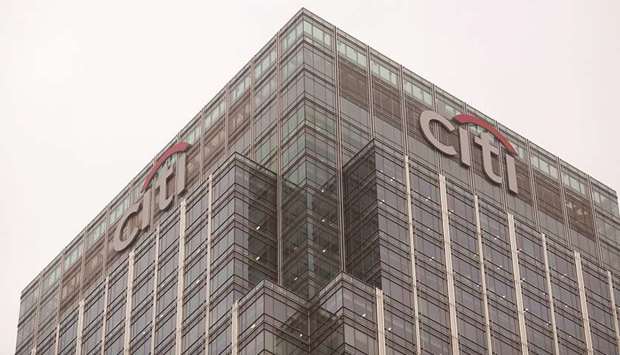Asia’s super rich suddenly have lots of time on their hands. The coronavirus has forced many of them to work from home, cancel travel and avoid the golf course. That’s left them more time to trade stocks amid the turmoil, boosting revenue for Citigroup Inc and other banks in the region.
“Clients are getting restless,” said Jyrki Rauhio, South Asia head of private banking for Citigroup. “They’re travelling less and have more time to look at the markets and review their portfolios.” New York-based Citigroup joins firms including UBS Group AG and JPMorgan Chase & Co that have seen a jump in trading this year as the virus roils markets.
The trading surge has helped dull the pain of a health crisis that has otherwise frozen parts of their Asian banking businesses, from mergers to initial public offerings, and grounded investment bankers across globe.
JPMorgan’s brokerage activity at its Asia private bank increased more than 30% in February from a year earlier as wealthy customers traded more, said Kam Shing Kwang, regional chief executive officer of the unit.
“Client activity has been good so far,” Kwang said in an interview. “The trend depends on how long the virus outbreak is going to last.”
The coronavirus epidemic has led to wild swings in equities around the world, boosting activity at stock exchanges and bringing in more revenue for bank trading desks. Some 49.1bn MSCI Asia Pacific Index shares changed hands on February 26, the highest level in history, according to data compiled by Bloomberg.
In Hong Kong, trading exceeded HK$100bn ($12.9bn) on 24 of the 28 days after the Chinese New Year holiday, according to data from the Hong Kong exchange. Trading on February 28 alone was the highest in a year. Currency and rates trading have also increased during the virus scare.
“The combination of less travel and increased market volatility means that clients are extremely active,” said Michael Blake, Asia CEO of Swiss private bank Union Bancaire Privée. “We have seen consistently high transaction volumes since the start of the year.”
With the fastest expansion of millionaires in the world, Asia is the region where wealth managers from UBS, Credit Suisse Group AG and others are seeking to grow. They’re racing against time to change how they interact with wealthy customers amid the outbreak that has claimed more than 3,300 lives.
While the virus has provided a short-term boost to trading, the travel restrictions have made it harder to win new private bank clients, especially in China. Some banks are signing up new customers digitally, though most new accounts have to be opened in person.
The risk for these banks is that a prolonged crisis will curb that client growth, just as they are trying to expand in China’s massive wealth market. The world’s second-largest economy is expected to see the biggest annual growth among the world’s private banking markets through 2023, Boston Consulting Group Inc said in a report last year.
One Hong Kong-based private banker, focused on the offshore Chinese business, said he’s mostly talking to prospective customers in his city because his firm has curbed travel and there are limited ways to reach mainland Chinese investors. Another banker, whose focus is on Hong Kong clients, said it’s difficult to get new business from clients because they are unwilling to meet even if they’re in town.
While his business in the first quarter is holding up, the outlook is dim if the outbreak persists, he said. Both bankers asked not to be identified speaking on client matters.
The crisis has opened up opportunities with existing clients as investor caution grows, bankers say. Blake at UBP said structured product volume has doubled from the same period a year ago as clients reduce risk and look for some downside protection. Citigroup has noticed a similar trend, with some clients holding more than 20% in cash, though some of that’s starting to be deployed after the global stock pull back.
JPMorgan and UBS are among banks that have allowed relationship managers to use WeChat, a popular messaging app in China, to communicate with clients on the mainland and maintain engagement.
The Swiss firm, Asia’s biggest wealth manager, said it’s been investing in technology and providing digital communication resources for its staff and clients.
“Since our clients are not travelling, they are actually spending more time discussing their investment portfolios with us over phone or video conference,” said Amy Lo, co-head of wealth management for Asia Pacific at UBS.

The headquarters of Citigroup in London. Citigroup joins firms including UBS Group and JPMorgan Chase & Co that have seen a jump in trading this year as the virus roils markets.
